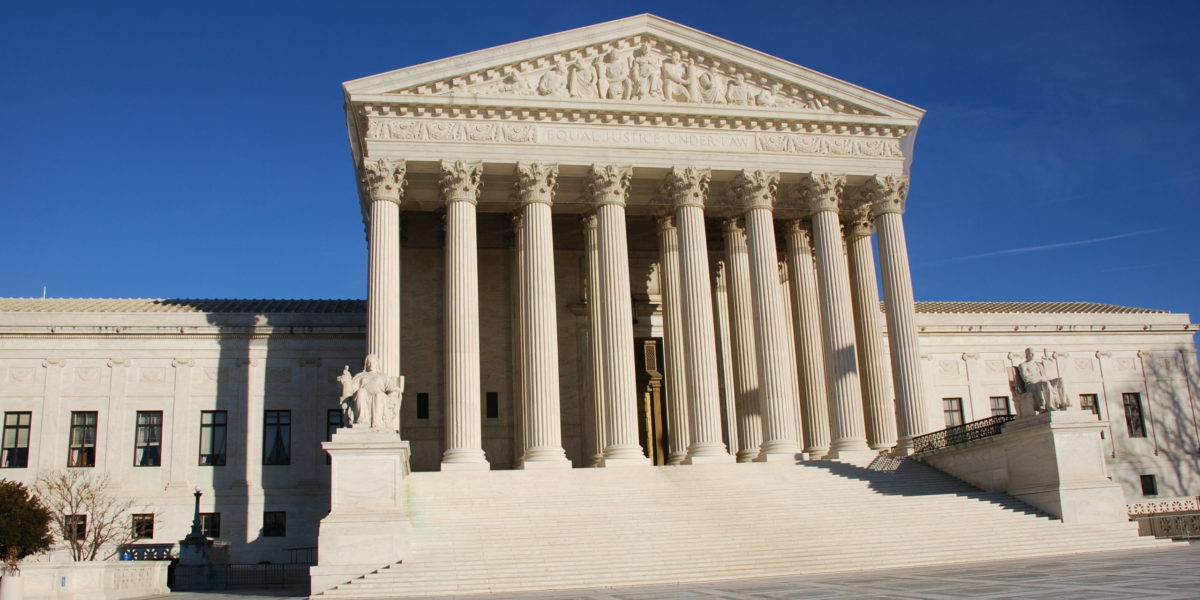The U.S. Supreme Court building in Washington, DC is truly august, its Corinthian columns and ornate pediments reminiscent of ancient Rome’s Temple of Mars Ultor, erected by Emperor Augustus to commemorate Mars, the god of war, in his role as avenger. Augustus employed the imperial design to convey that a new order had arrived after quelling a civil war that had consumed the region for fifty years. Two thousand years later, Supreme Court Justice Samuel Alito has unleashed his own form of vengeance, from within the Supreme Court’s columned walls, revealed in a draft opinion on abortion he authored, leaked by a person or persons not yet publicly known then published by Politico.
This unprecedented leak reveals a majority of the Supreme Court’s nine justices appear committed to overturning both Roe v. Wade and Planned Parenthood v. Casey, its two decisions that protect U.S. abortion rights. Alito’s causticly-worded draft opinion in the case of Dobbs v. Jackson Women’s Health has sparked a nationwide furor. A half-century of legal precedent and settled law protecting the popular right to abortion could be overturned by five unelected justices with lifetime appointments who rule by fiat, just like Roman emperors.
“Roe was egregiously wrong from the start,” Alito’s opinion declares. “It is time to heed the Constitution and return the issue of abortion to the people’s elected representatives.”
The “people’s elected representatives” are hardly that anymore, as the Supreme Court in recent years has gutted the Voting Rights Act in Shelby v. Holder, authorized unlimited dark money to pervert our elections with its Citizens United decision, and given carte blanche to state legislatures to gerrymander districts. Now the Republican Party is organizing nationally to overturn the 2024 election if it doesn’t like the results. The current court is even more extremist and partisan than the one that halted the Florida recount in 2000 with its notorious Bush v. Gore decision. That case overruled the will of the majority of Floridians, who voted to elect Al Gore president, handing the election instead to Republican George W. Bush.
If, as is widely expected, the leaked document remains largely unchanged when it is released in June, then Roe and Casey will be overturned. Roughly half of U.S. states have existing laws or laws that would be immediately triggered to severely restrict abortions or ban them entirely. Sixteen states and the District of Columbia, conversely, have enshrined in law the right to an abortion to some degree. Several states, California included, are moving to place the right to an abortion in their state constitution.
This wave of likely abortion bans will cause a cascade of harm, disporoportionately among poorer people, people of color and in other marginalized communities. People will skip needed abortions, or obtain them extralegally, putting patients at added risk, not only to their health but also potentially exposing them to prosecution.
This isn’t mere speculation. Last month in Starr County, Texas, Lizelle Herrera, a 26-year-old Latina woman, was arrested for murder, accused of causing the “death of an individual through a self-induced abortion.” After public outrage and organizing by La Frontera Fund, a local reproductive rights organization led by women of color, the district attorney dropped the charges. A new law proposed in Louisiana, meanwhile, would make the destruction of a fertilized human egg at any stage of its development an act of murder, punishable, presumably, by Louisiana’s death penalty.
Justice Alito desperately grasps at history to buttress his antiabortion argument, quoting “Henry de Bracton’s13th-century treatise,” which mentions punishment for abortions, as if somehow referring back to a time when women were considered property and being burned at the stake for witchcraft should control 21st century medicine and law. Alito then provides a list of antiabortion laws from various U.S. states, enacted between 1850 and 1919. When these laws were passed, women had no right to vote, and most African Americans were either legally enslaved, or, after emancipation, subjected to racial terrorism and lynching at the hands of law enforcement and the Ku Klux Klan. Traditions from these eras, Alito says in his rewriting of history, should dictate current law.
Under this mountain of repugnant, antiquated law, Alito and his four cohorts on the Supreme Court are attempting to bury the last fifty years of safe, legal abortion, now supported by at least 70% of the U.S. population. If this isn’t judicial activism and overreach, then nothing is.
“We need to focus on electing champions for choice,” Kathryn “Kitty” Kolbert, the attorney who successfully argued Planned Parenthood v Casey before the Supreme Court in 1992, said on the Democracy Now! news hour. “We can only do that by hard work. It took our opponents almost five decades to get where they have gone…we, too, can turn it around.”
This column first appeared in Democracy Now!
CA
Will Safe Abortion Fall Victim to a Supremely Conservative Court?
Amy Goodman and Denis Moynihan analyze whether the U.S. Supreme Court serves the interests of Americans or the interests of the Republican Party.



